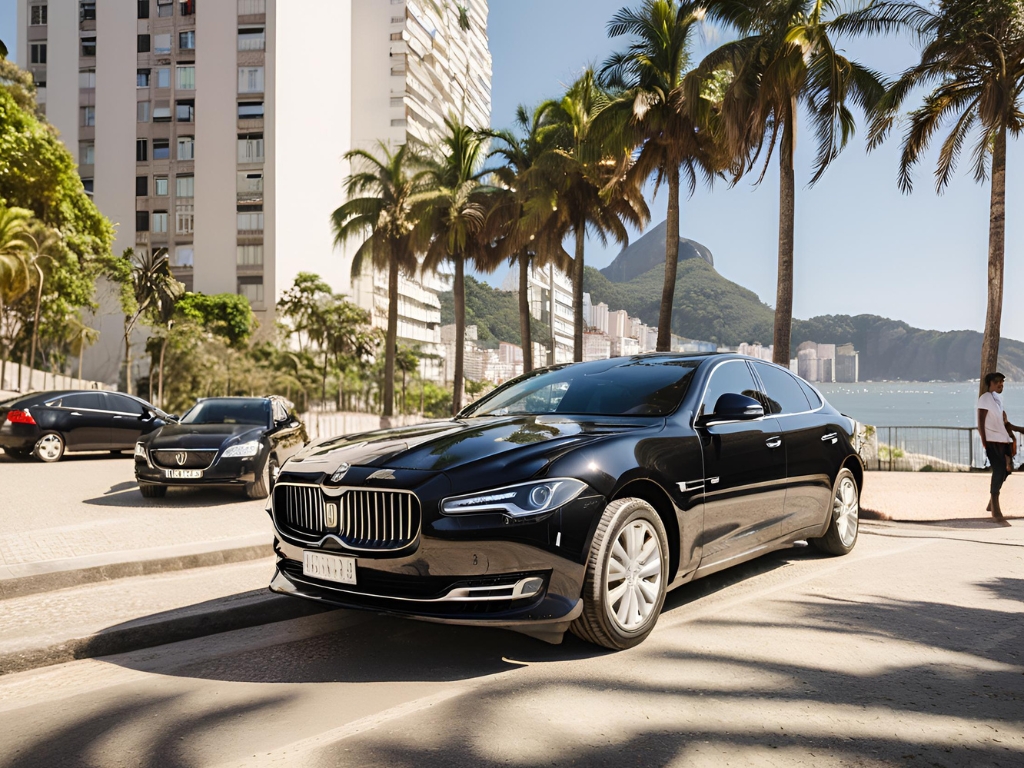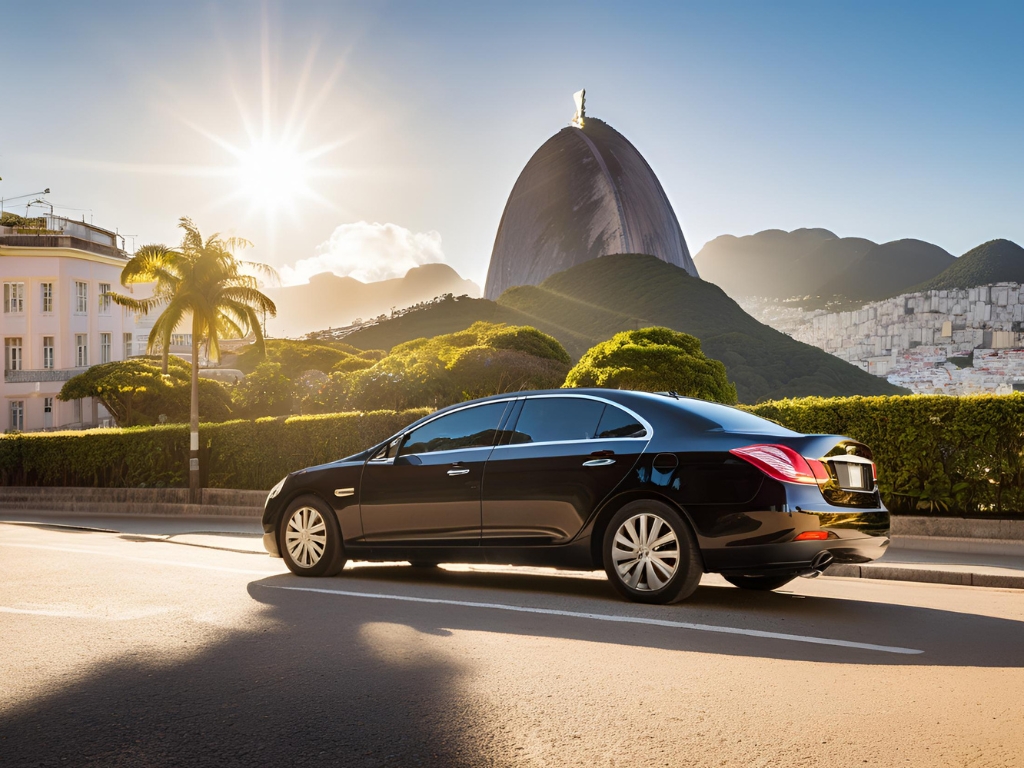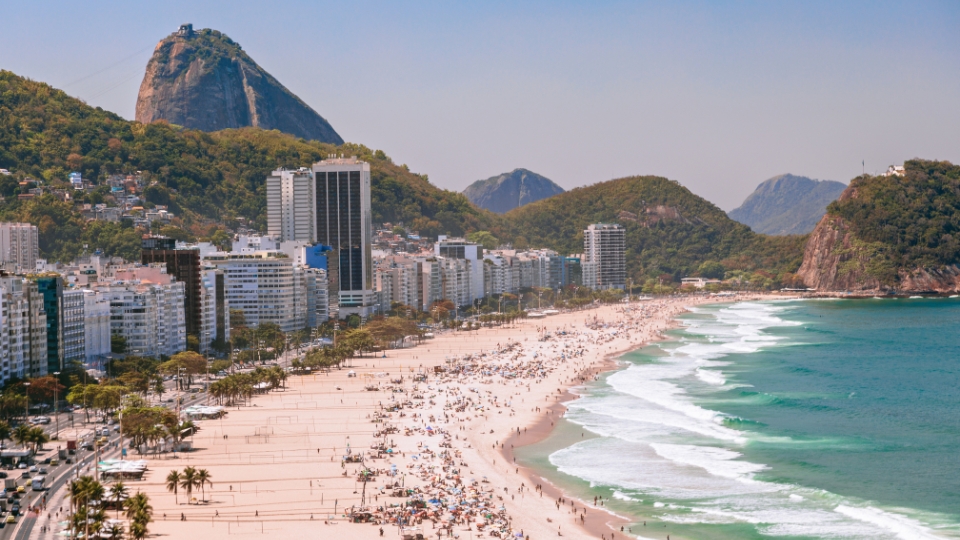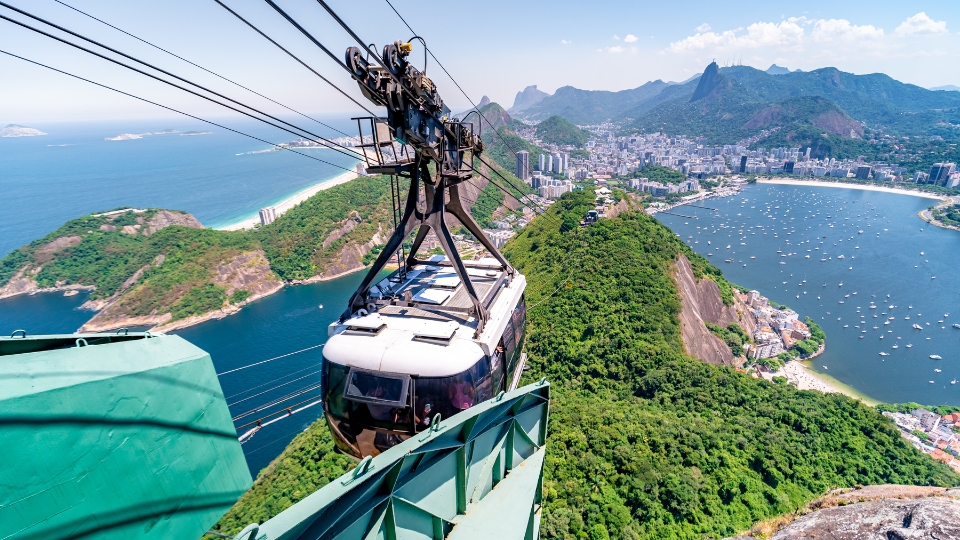G20 Rio de Janeiro Transportation: Navigating the Summit Efficiently
As one of the world’s most significant diplomatic events, the G20 Summit brings together leaders from the globe’s largest economies. Efficient transportation is key to ensuring the summit’s success. For those attending the G20 in Rio de Janeiro, understanding how to navigate the city and its transportation systems is essential.

Understanding the G20 Summit Transportation Challenges
Navigating Rio de Janeiro can present unique transportation challenges, particularly during large-scale events like the G20 Summit. With increased security, road closures, and a surge in traffic, careful planning is required to avoid potential issues.
The Importance of Efficient Transportation for Global Summits
Transportation logistics are one of the pillars of any successful international summit. Delegates and officials must move seamlessly between venues for bilateral meetings, official sessions, and evening functions. Efficient transportation not only ensures punctuality but also reflects the professionalism of the host nation. A city that can transport thousands of visitors smoothly during such a high-stakes event strengthens its global reputation. Moreover, punctuality is particularly vital in diplomatic settings, where delays can impact negotiations or prevent critical networking opportunities.
During the G20, where time-sensitive discussions on global economies and crises take place, any disruption to the transportation system could have broader implications. Timely arrivals at sessions ensure that global leaders can engage fully, without the added stress of traffic complications.
Unique Transportation Challenges in Rio de Janeiro
Rio de Janeiro’s combination of natural beauty and dense urban areas creates a complex transportation landscape. The city’s famous hills and coastal roads, while scenic, often limit the expansion of major highways. During large-scale events like the G20, this unique geography can exacerbate existing congestion problems, particularly in neighborhoods like Copacabana, Ipanema, and Barra da Tijuca, which are close to key venues.
Additionally, Rio’s road infrastructure is already heavily used during normal business hours. For the summit, the influx of international visitors, government officials, and security details is expected to place further strain on the city’s transportation system. In response, the city must deploy solutions such as road closures, dedicated bus lanes, and strict traffic control measures. However, these measures can also cause temporary confusion for residents and visitors alike, making preparation essential for attendees.
Preparing for the G20 Summit: Transportation Infrastructure
To address these challenges, Rio de Janeiro’s government has implemented several infrastructure improvements ahead of the G20 Summit. These upgrades aim to enhance the flow of traffic and improve the overall experience for visitors.
Enhancements to Public Transportation Systems
Ahead of the G20, Rio has invested in expanding its public transport network to better serve the influx of visitors. The metro system, which is often the quickest way to navigate through the city, will run additional services and extended operating hours during the summit. This will make it easier for attendees to travel between their accommodations and G20 venues without facing significant delays.
Furthermore, the city’s BRT (Bus Rapid Transit) system will also see upgrades. The BRT system, which connects key locations across the city with dedicated lanes for buses, will have increased frequency, reducing wait times and helping alleviate the pressure on other forms of transport. These buses are particularly useful for connecting the more distant neighborhoods to the event venues.
Rio’s light rail system (VLT), primarily in the downtown area, will also be operating at full capacity, providing a convenient option for those staying near the business district. All these enhancements are designed to ensure that, whether delegates choose to use the metro, bus, or light rail, they will have efficient options to avoid traffic.
Road and Traffic Management Strategies
In anticipation of the G20, Rio’s traffic management team has worked closely with event planners to develop a comprehensive strategy for keeping traffic under control. One of the primary initiatives includes the establishment of dedicated lanes for summit-related vehicles. These lanes will be strictly reserved for officials, heads of state, and VIPs, allowing them to travel swiftly between venues and their hotels.
In addition to the dedicated lanes, Rio will implement temporary road closures in areas surrounding summit venues, such as the Riocentro Convention Center. These closures, while essential for security, will be clearly marked and planned well in advance to minimize inconvenience. Traffic monitoring systems equipped with real-time GPS tracking will help authorities dynamically adjust traffic flow, opening and closing roads as needed to prevent congestion in critical areas.
To further mitigate disruptions, the local government will deploy additional traffic officers across key intersections and use digital signage to inform drivers of alternative routes, helping both residents and summit participants to avoid delays.
Navigating Rio During the G20 Summit
Understanding the best ways to get around Rio during the G20 Summit is essential for both attendees and tourists. A mix of public and private transportation options will be available to ensure efficient movement throughout the city.
Utilizing Public Transportation: Buses, Trains, and Taxis
Rio de Janeiro boasts a robust public transportation system that includes buses, the metro, and taxis. Buses will be an essential part of the transportation puzzle during the summit, especially for routes that are less accessible by metro. The city has planned to increase the frequency of buses to accommodate summit attendees, providing an affordable and reliable option for those staying further from the central venues.
For those traveling longer distances, the metro is perhaps the fastest and most efficient mode of transport. It connects major areas of the city, including key hotels and event venues. The summit organizers will provide maps and schedules specifically for G20 attendees, ensuring that visitors can navigate the system easily.
Taxis and ride-sharing apps, such as Uber, will also play a crucial role. With language barriers often posing a challenge, ride-sharing apps offer a user-friendly interface for non-Portuguese speakers, allowing them to book rides to and from key locations. Taxis, however, remain widely available and are a great option for direct routes that avoid the need for public transit transfers.
Private Transportation: Car Rentals and Ride-Sharing Services
For those who prefer the convenience and flexibility of private transportation, Rio offers various car rental services, many of which provide English-speaking customer support. Car rentals can be a practical option for attendees with meetings or events outside the city center, as they allow for greater control over schedules and routes. GPS-enabled vehicles make it easier to navigate Rio’s winding roads, especially for those unfamiliar with the area.
Ride-sharing services like Uber and 99, a popular local competitor, will also be in high demand. These services can be particularly useful for individuals who prefer not to rely on public transportation or wish to avoid the uncertainties of hailing a taxi. Ride-sharing apps in Rio often offer premium options like Uber Black, which provides more luxurious vehicles—an appealing choice for high-profile G20 delegates.

Ensuring Safety and Security in Transportation
With so many high-profile figures attending the G20 Summit, security is a top priority for both public and private transportation systems in Rio.
Security Measures for Public and Private Transport
To ensure the safety of all summit participants, security will be significantly heightened across Rio’s transportation network. Public transport systems, including buses and metro stations, will see an increased presence of security personnel. These officers will conduct random security checks and monitor stations for any suspicious activity, ensuring that passengers can travel with peace of mind.
Private transport services, including taxis and ride-sharing companies, will also undergo stricter regulations during the G20 Summit. Drivers will be required to pass background checks, and vehicles may be subject to inspections at key checkpoints. Additionally, many luxury transport services will offer armored vehicles for high-ranking officials and VIPs, providing an extra layer of protection.
Emergency Preparedness and Response for Transportation Incidents
Rio de Janeiro has developed a comprehensive emergency response plan in the event of transportation incidents during the G20 Summit. First responders, including paramedics, police, and fire services, will be stationed throughout the city to quickly address any potential emergencies. Mobile command centers will be set up near key venues, providing rapid response teams with the ability to react to incidents swiftly and efficiently.
In the unlikely event of a major transportation disruption, the city’s authorities will coordinate with local hospitals and international embassies to ensure immediate medical attention for summit attendees. Information hotlines and multilingual support will be available for visitors to report any safety concerns or emergencies.
Sustainable Transportation Solutions for the G20 Summit
Rio de Janeiro is also focusing on sustainability during the G20 Summit by promoting environmentally friendly transportation options that reduce the city’s carbon footprint.
Promoting Green Transportation Options
In line with the global push for sustainability, Rio de Janeiro is embracing greener transportation alternatives. The use of electric buses has been expanded, particularly in areas surrounding G20 venues. These electric buses produce zero emissions and contribute to reducing the overall environmental impact of summit-related transportation.
In addition to buses, Rio’s bike-sharing program, Bike Rio, will offer additional bicycles at key docking stations throughout the city. This initiative encourages both locals and visitors to opt for cycling as a quick and eco-friendly way to travel short distances. Dedicated bike lanes around the summit venues will make it easier for cyclists to navigate the city safely.
Minimizing the Environmental Impact of Transportation
Attendees are encouraged to make conscious transportation choices to minimize their carbon footprint during the summit. Carpooling and shared rides can significantly reduce the number of vehicles on the road, helping to alleviate traffic congestion and lower emissions. In addition, many G20-related events will provide shuttle services using hybrid or electric vehicles, further promoting environmentally sustainable practices.

Experience Rio de Janeiro with Brazil Exclusive Travels
For those looking to combine business with leisure during the G20 Summit, Brazil Exclusive Travels offers tailored transportation and concierge services. Beyond simply getting from point A to point B, these services ensure that guests experience the best Rio de Janeiro has to offer, while maintaining the highest standards of comfort, privacy, and security.
Luxury Transportation Services for G20 Delegates
Brazil Exclusive Travels provides high-end transportation services that go beyond typical ride-sharing or public transit options. Delegates attending the G20 can expect chauffeured vehicles, including luxury sedans and SUVs, all equipped with the latest amenities to ensure a smooth and comfortable journey across Rio.
Each vehicle is staffed by highly trained, bilingual drivers who are familiar with Rio’s complex road network, allowing delegates to navigate the city with ease. Whether attending a summit session, bilateral meeting, or evening function, Brazil Exclusive Travels ensures that clients arrive on time and in style. The service also includes real-time GPS tracking, so that VIPs and their security teams can monitor travel routes and adjust plans as needed.
Private Tours and Cultural Experiences
For delegates who want to explore Rio de Janeiro during their stay, Brazil Exclusive Travels offers personalized tours of the city’s most iconic sites. These tours are fully customizable, allowing visitors to choose between sightseeing in world-famous locations like Sugarloaf Mountain, Christ the Redeemer, or a guided stroll through the historic neighborhoods of Santa Teresa and Lapa.
Beyond city tours, Brazil Exclusive Travels offers immersive cultural experiences. Delegates can unwind after the summit with a visit to Rio’s pristine beaches or an exclusive dinner at one of the city’s top-rated restaurants. The concierge team is on hand to tailor experiences that fit the preferences and schedules of each guest, ensuring a memorable stay in Rio.
Enhanced Security and Privacy for VIP Clients
For high-profile individuals attending the G20 Summit, privacy and security are paramount. Brazil Exclusive Travels provides a range of security options, including discreet bodyguard services and armored vehicles for transportation. These services are especially valuable for international dignitaries, corporate executives, and other VIPs who require heightened security measures.
Bodyguards provided by Brazil Exclusive Travels are experienced professionals with backgrounds in security and personal protection. Their role is to ensure the safety of clients without intruding on their day-to-day activities. Coupled with secure transportation options, these services allow clients to focus on the summit without worrying about safety concerns.
Conclusion: Making the Most of Rio’s Transportation for the G20
The G20 Summit is a critical event, and navigating Rio de Janeiro’s bustling streets during this time can be a challenge. However, with enhanced public transportation systems, private luxury options, and a focus on safety and sustainability, attendees can expect a smooth and efficient experience.


